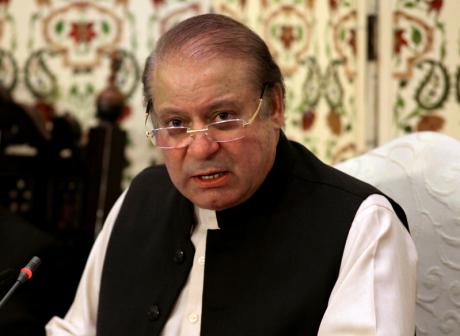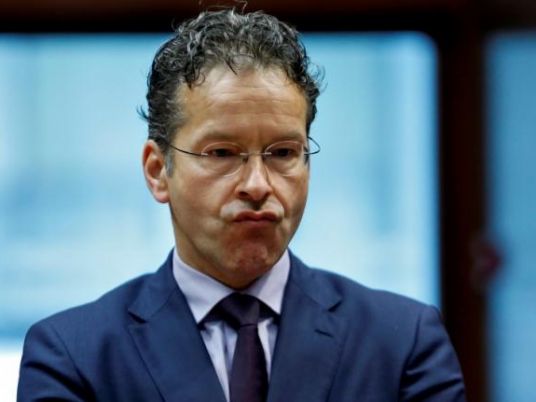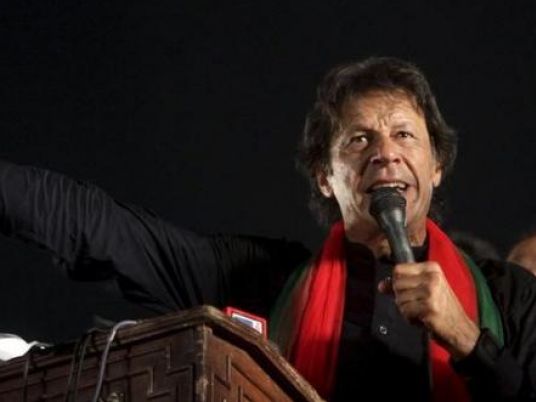
Pakistan's Prime Minister Nawaz Sharif was given a reprieve Thursday when the Supreme Court ordered he be investigated for corruption, but ruled there was not yet sufficient evidence to oust him from power.
Sharif and his children are accused of graft in the ongoing case which has captivated Pakistan and threatened to topple the prime minister after the Panama Papers leak last year linked the family to offshore businesses.
The Supreme Court issued a split ruling calling for a joint investigation team of anti-corruption officials along with the powerful Inter-Services Intelligence (ISI) and Military Intelligence to probe the claims and issue a report within 60 days.
"A thorough investigation is required," Justice Asif Saeed Khosa told the court, presenting the 540-page written judgement which opens with the epigraph that launches Mario Puzo's 1969 novel "The Godfather": "Behind every great fortune there is a crime".
Two of the five judges went further than the ruling, branding Sharif "dishonest" and saying he should be disqualified, but they were outnumbered.
The court has disqualified leaders before, holding former prime minister Yousuf Raza Gilani in contempt in 2012 for refusing to re-open corruption investigations into then president Asif Ali Zardari, resulting in his disqualification.
Government supporters could be seen celebrating the judgement with sweets outside the court in Islamabad, where around 1,500 police commandos and riot forces had been deployed ahead of the highly anticipated decision.
"We will cooperate fully with the investigation, and seek to clear whatever doubts are left," defence minister Khawaja Asif told AFP.
Pakistani cricketer-turned-politician Imran Khan, whose Pakistan Tehreek-i-Insaf (PTI) party has spearheaded the push against Sharif, called on the prime minister to resign until the investigation is completed.
"Whatever explanations they gave inside the Supreme Court about their source of income have been exposed as lies," Khan told reporters in the wake of the judgement Thursday.
The continuing controversy could trouble Sharif's governing party ahead of general elections that must be held by the end of next year, and as security and the economy improve in the militancy-plagued country.
PM Weakened?
It erupted with the publication of 11.5 million secret documents from Panamanian law firm Mossack Fonseca last year which documented the offshore dealings of many of the world's rich and powerful.
Among the global elite implicated were three of Sharif's four children — his daughter and presumptive political heir Maryam, and his sons Hasan and Hussein.
At the heart of the matter is the legitimacy of the funds used by the Sharif family to purchase several high-end London properties via offshore companies.
Sharif's ruling PML-N party insists the wealth was acquired legally through family businesses in Pakistan and the Gulf.
But PTI lawyers argued the paper trail for the funds is non-existent, and said the onus was on Sharif to prove his relatives did not engage in money laundering.
Observers have called the case important for Pakistan, which ranked a lowly 116th out of 176 countries in a corruption index released by Transparency International in January.
"Whether the court convicts him or not today it spells trouble and the prime minister will be weakened," said Herald newspaper editor Badar Alam.
But columnist and political analyst Umair Javed said the ruling had benefits for both sides, noting it was "interesting" that two judges had thought to disqualify Sharif.
The inclusion of the intelligence agencies in the investigation means Sharif and his family "won't be able to play around or drag their feet," he said.
Khan's party could yet fail to capitalise on the investigation, he said — meanwhile, Sharif's party no longer faces a leadership crisis.
"That will only happen if the PM is ultimately found guilty of money laundering or tax evasion by the (investigation). The odds of this are quite low," he told AFP.
The controversy is the latest to hit Sharif, an industrialist serving his third term as prime minister after the first two were interrupted by interventions from the country's powerful military.
Pakistan, which marks its 70th anniversary of independence later this year, has seen a surge in optimism in recent months.
Security has dramatically improved in the last two years, overall confidence in the economy is growing, and the military, which has ruled the country for more than half its history, appears to have reached an accommodation with Sharif's civilian government.
Report by Khurram Shahzad (Islamabad); AFP




